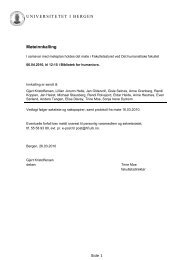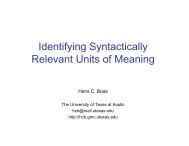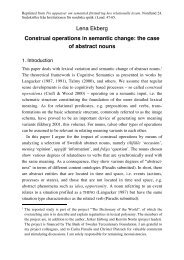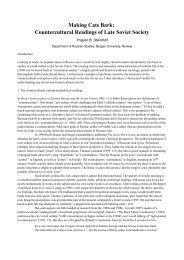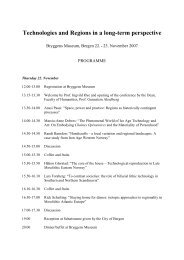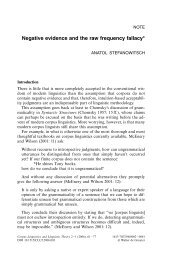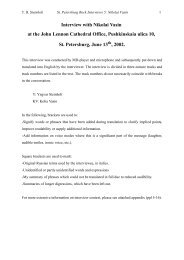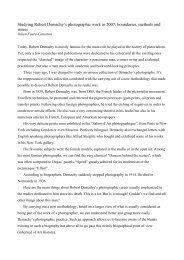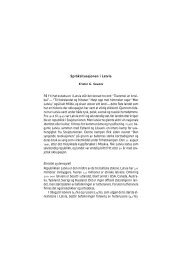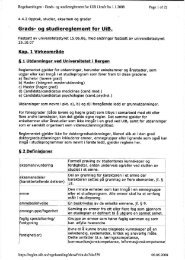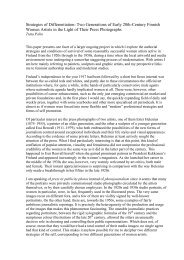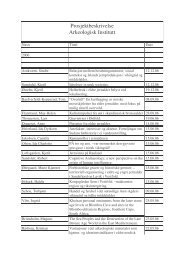THE BOOK OF POEMS IN TWENTIETH-CENTURY ... - TopReferat
THE BOOK OF POEMS IN TWENTIETH-CENTURY ... - TopReferat
THE BOOK OF POEMS IN TWENTIETH-CENTURY ... - TopReferat
You also want an ePaper? Increase the reach of your titles
YUMPU automatically turns print PDFs into web optimized ePapers that Google loves.
evealed by the Church and the saints, is open to all, it is up to the individual to make the<br />
choice and to follow his own path. In making this choice, the individual will not be lost<br />
within the communal ideal, but will instead be freed—capable of both communion and<br />
selfhood. 127<br />
The birth of "three-crowned Freedom" in "Рождение" thus represents the<br />
fulfillment of Merezhkovsky's and Gippius's prophecies. Beyond the birth of Christ,<br />
"Рождение" signals the rebirth or resurrection of the Christian Church. In the realization<br />
of the Third Testament, Heaven and Earth will be miraculously united—all antitheses (of<br />
sex and asceticism, individualism and sociality, slavery and freedom, atheism and<br />
religiosity, hatred and love) will be resolved. 128<br />
"Рождение" was written four years before "Втайне" and "St. Thérèse de l'Enfant<br />
Jésus." 129<br />
Gippius does not mention Teresa or any other female figure explicitly in the<br />
poem, yet the prominence of feminine nouns, particularly the culminating capitalized<br />
"Свобода" and "Звезда," creates a strong feminine presence. This feminine role will<br />
take on a stronger, more personal force when the abstract nouns of "Рождение" are<br />
exchanged for the names of Teresa, other individual women, and the familiar pronoun<br />
"ты" later in Сияния. This movement toward specificity—toward an identification with<br />
or exploration of individual spiritual paths—is typical of Gippius. Unlike her husband,<br />
127 See Matich, Paradox, 49 and Pachmuss, Merezhkovsky in Exile, 64-5. In addition to Merezhkovsky's<br />
global dialectic, Gippius found local and personal manifestations of the trinity, or "Three in One." She<br />
described her spiritual group—Merezhkovsky, Filosofov and herself—as a trinity; each retained his or her<br />
individuality and independence, yet together they created something larger than themselves. See Matich,<br />
Paradox, 27.<br />
128 Pachmuss, Merezhkovsky in Exile, 58.<br />
129 "Рождение" is dated December 24, 1920 and is the second-oldest poem included in Сияния. It could<br />
have been included in Gippius's previous book, Стихи. Дневник (1911-1921), but it resonates much more<br />
closely with her life after her emigration to France in 1920, particularly her newfound love for Teresa.<br />
101



